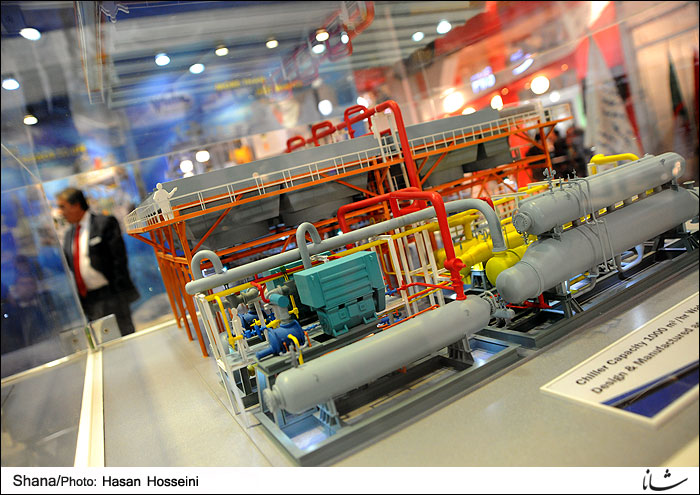International findings on methods of development of successful oil companies nationally show that without systematic and mutual link with companies owning knowledge and equipment, it will be very difficult and complicated how to transfer technology.
Due to lack of constant and systematic link between National Iranian Oil Company and the consortium companies and also in absence of the exploration and production activities in the NIOC in the years before the 1979 Islamic Revolution, transfer of technology was not possible and no mechanism had been foreseen for the purpose.
Iranian engineers busy in the oil rich regions used to be mainly the employees of the consortium, consisting international companies.
After the Islamic Revolution, a large number of the experts either emigrated or were dismissed; The remaining experts in fact undertook the basics of the technical side of the production related job in the NIOC.
However, due to lack of suitable structure for such a knowledge, it failed to serve as a science in implementation of the exploration and managerial development projects.
Of course, in addition to the managerial and structural barriers, lack of financial resources was taken as a bottleneck of development in the NIOC.
First of all, the budgeting of projects was based on the financial sources put aside exclusively for development within framework of annual budgets. However, high cost of the eight-year war with Iraq and reconstruction of the imposed war ruins as well as low crude prices posed severe restrictions to development of the oil industry in 20 years after the revolution. However, such a money needed by the NIOC could be met in the 3rd Five-Year Plan through export of oil derivatives.
However, the financial resources gained out of export of the crude residue could hardly meet the need of the country's oil industry. Additionally, the law hindered the refinery development projects due to the financial resources gained out of the crude residue exports.
Long years of deprivation in the oil industry after the Islamic Revolution, made the policy makers use service contracts and cooperation with the international oil companies to make up the past shortage. Hence, based on the approvals of the budget law in the year 1994, conclusion of the buy-back contracts using financial sources of the contractors and repayment out of production was recognized authorized. After about 20 years from conclusion of the buy-back contracts, energy experts found out that the contracts are by no means capable of transferring technical know-how and project management as well as protective production from storage tanks. So, long years of study of similar contracts, like Iraq service contracts, resulted in using more suitable methods in conformity with experience of other oil producing countries to compile new contracts. The architects of the contracts tried to maintain legal frameworks of sovereignty, ownership and profits gained out of oil and gas production.
The new contracts were designed to meet such a goal and highlights of the mandates of the contracts were approved by the cabinet as follows.
*Mandating civil P&E contracting companies to cooperate with foreign contractors in exploration and development fields when the new contracts are in force; cooperation between Iranian and international companies in various periods, including feasibility studies, preparation of the MDP, choosing technology and various implementation phases will hence be possible. So, naturally and automatically, it will be possible to transfer technical know-how and management of implementation of projects to Iranian parties possible. Moreover, Iranian engineers' financial potential and knowledge will be used in the best possible manner in the period.
*In the buy-back contracts – due to short-term presence of foreign contractor – transfer of technical know-how and managerial skills will be very limited and even impossible. On the other hand, the part dealing with education and transfer of technical know-how and practically using contractor's services will not be possible practically due to bureaucratic and traditional management problems. Also, the buy-back contracts do not enjoy an automatic mechanism for transfer of technology to the NIOC or other subsidiary companies.
*Based on the buy-bac contracts, the contractor will deliver the field to the domestic exploitation company once the executive phases of the project are over and hence, it will not be possible for foreign contractor to be directly present and effectively use his technical and operational capacity in the exploitation phase. This is while, the new contracts envision presence of the contractors and their partnership with domestic manufacturing companies. The production will be possible as a result in the exploitation phase with the contractor. Presence of the contractor in the exploitation phase, possibility for transfer of technical know-how with respect to possibility of reconsidering the development roadmap in tandem with the new findings at the time of development and actual field/storage tank behavior in the production phases will be possible.
So the new contracts envision transfer of technical know-how and management of the domestic manufacturing and exploitation companies, including the private and government sectors, in the course of implementation period. Transfer of the knowledge to domestic manufacturing companies in the phases of exploitation will be hence possible.
As for incorporation of certain legal mandates in the text of the contract, it should be said certain clauses should be included: Clauses regarding quality of preparation and presentation of technical evidence and documents; holding educational workshops for the E&P contractors prior to any study and in the course of the implementation phase; and holding educational courses for the partner exploitation companies in the exploitation period.
If the mandates are included in the said contracts, the Iranian E&P companies will well identify the process of activities and acquire appropriate conditions for cooperation with the international companies in different phases of implementation and exploitation.
Author: Mirtra Modaressi, MA in Economy of Energy
Translated by Behnaz Hossein Gholipour


Your Comment